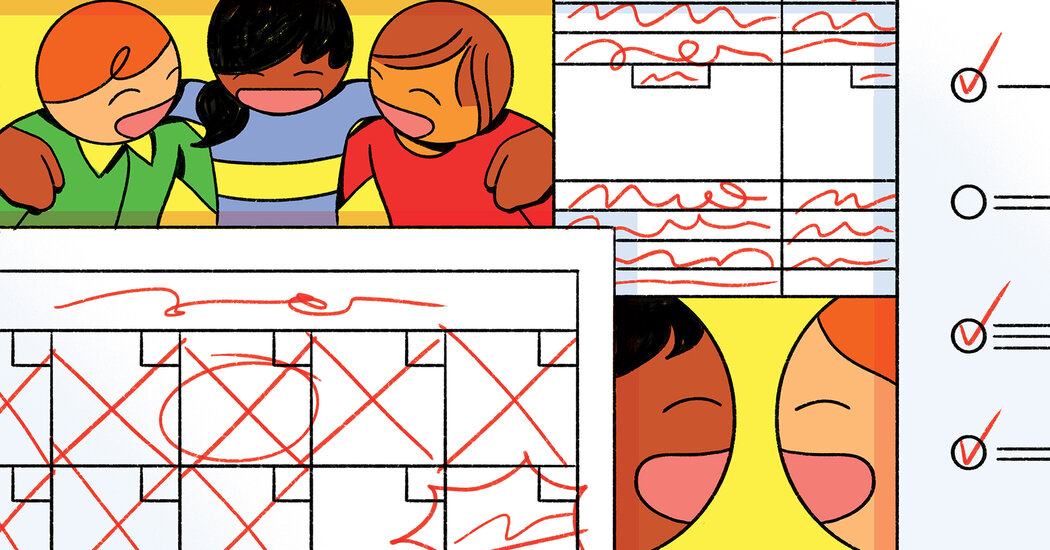Opinion | How to Make Friends After a Pandemic — and Why You Should
To be clear, much of this was for good reason. We had to protect ourselves and others from the virus and, for those of us with kids, we had to protect our sanity during whack-a-mole school closures.
But now that offices are calling workers back and socializing is returning to something resembling normal for many of us, we have to decide which pandemic-era habits to hold on to, and which to ditch. It might be tempting to retain some of these social efficiencies — especially if you’ve found you’re crushing your to-do lists and enjoying the Netflix catalog. But there is an inertia to an optimized way of life in which time for building and rebuilding friendships can all too easily get cannibalized.
It was hard enough to make and maintain friendships as an adult beforehand. In our new, streamlined way of life, it’s even harder. While the research is unequivocal that relationships are key to both mental and physical health, meaningful relationships are neither productive nor efficient, at least not in the short term.
Making new friends involves many inefficiencies: hanging out for hours on end; buying or preparing food or drinks for people who you may or may not click with; traveling to unfamiliar places or homes at appointed times, even when you’re not in the mood; commuting to the gym or the neighborhood park instead of working out at home. Not to mention, maintaining existing friendships also takes work and emotional investment — without any guarantee of a return.
If your goal is optimization today, tomorrow or this week, it almost always makes sense to push friendship-building and maintenance down the list of priorities. But I’d suggest that the more important cost-benefit analysis to do is the longer-term one: If your goal is to be grounded and fulfilled over the course of a lifetime, then there is nothing more important than nurturing our essential bonds.
Building a community of friends, even if it starts with a feeling of obligation, boredom or mild irritation at the time invested in it, is a part of how we protect ourselves and our families from the vagaries of human existence, as the writer Jonathan Tjarks wrote movingly in The Ringer recently. Facing his own cancer diagnosis and thinking about who would be there for his young son if he dies, he describes the investment of time he has made into making friends in a “life group” he attends regularly at his church: “Life group is a different kind of insurance,” he writes. “People talk a lot about medical insurance and life insurance when you get sick. But relational insurance is far more important.”
The good news is that even if our relationship-building muscles have atrophied, with a bit of work they’ll regain their strength. The research of John Cacioppo, a social neuroscientist at the University of Chicago, found that while loneliness and isolation build on themselves, so too do friendships and community. As you meet and connect with a greater number of people, you expand your social skills and confidence.
Check out our Latest News and Follow us at Facebook
Original Source







